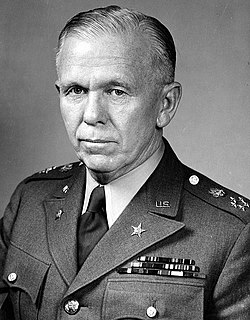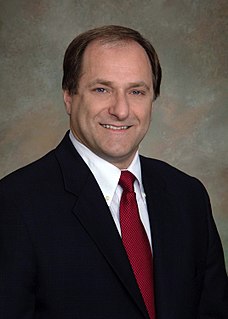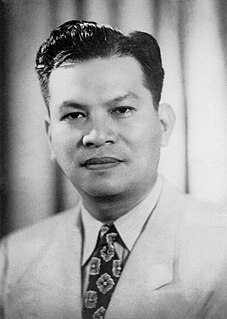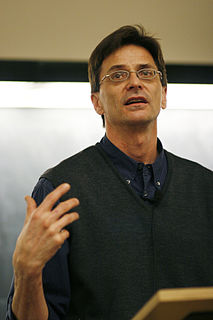A Quote by John Berger
A boycott is directed against a policy and the institutions which support that policy either actively or tacitly. Its aim is not to reject, but to bring about change.
Related Quotes
Regime change has been an American policy under the Clinton administration, and it is the current policy. I support the policy. But regime change in and of itself is not sufficient justification for going to war--particularly unilaterally--unless regime change is the only way to disarm Iraq of the weapons of mass destruction pursuant to the United Nations resolution.
For me the root of evil today is the policy of President Bush. It is a fascist policy. I cannot understand how is it that the Jewish people, who have been the victims of Nazism, can support such a fascist policy. No other people in the world support those policies but Israel! This situation saddens me.
The policy that received more attention particularly in the past decade and a half or so has been the US cocaine policy, the differential treatment of crack versus powder cocaine and question is how my research impacted my view on policy. Clearly that policy is not based on the weight of the scientific evidence. That is when the policy was implemented, the concern about crack cocaine was so great that something had to be done and congress acted in the only way they knew how, they passed policy and that's what a responsible society should do.
The problem is the policy makers don't have practitioners in the policy team. You won't make an IT policy without consulting a Narayan Murthy or Nandan Nilekani. But for energy, people think they know everything and they know what to do for it. That's how the policies are created in Delhi and that needs to change.
We're all in the race game, so to speak, either consciously or unconsciously. We can overtly support white-supremacist racial projects. We can reject white supremacy and support racial projects aimed at a democratic distibution of power and a just distribution of resources. Or we can claim to not be interested in race, in which case we almost certainly will end up tacitly supporting white supremacy by virtue of our unwillingness to confront it. In a society in which white supremacy has structured every aspect of our world, there can be no claim to neutrality.
I think Hillary Clinton is more suspicious, clearly tougher on Russian policy in Ukraine, Georgia, Syria; more willing to support sanctions; not against negotiating with Putin, but I would say tougher and more skeptical. And Donald Trump has talked about revisiting policy towards Ukraine, revisiting policy about sanctions towards Russia, not as quick to criticize Putin for what he might be up to in Syria and propping up the regime there - so just seems to be more open to the possibilities of working out some kind of a - I guess you'd call a modus vivendi with Putin.






































